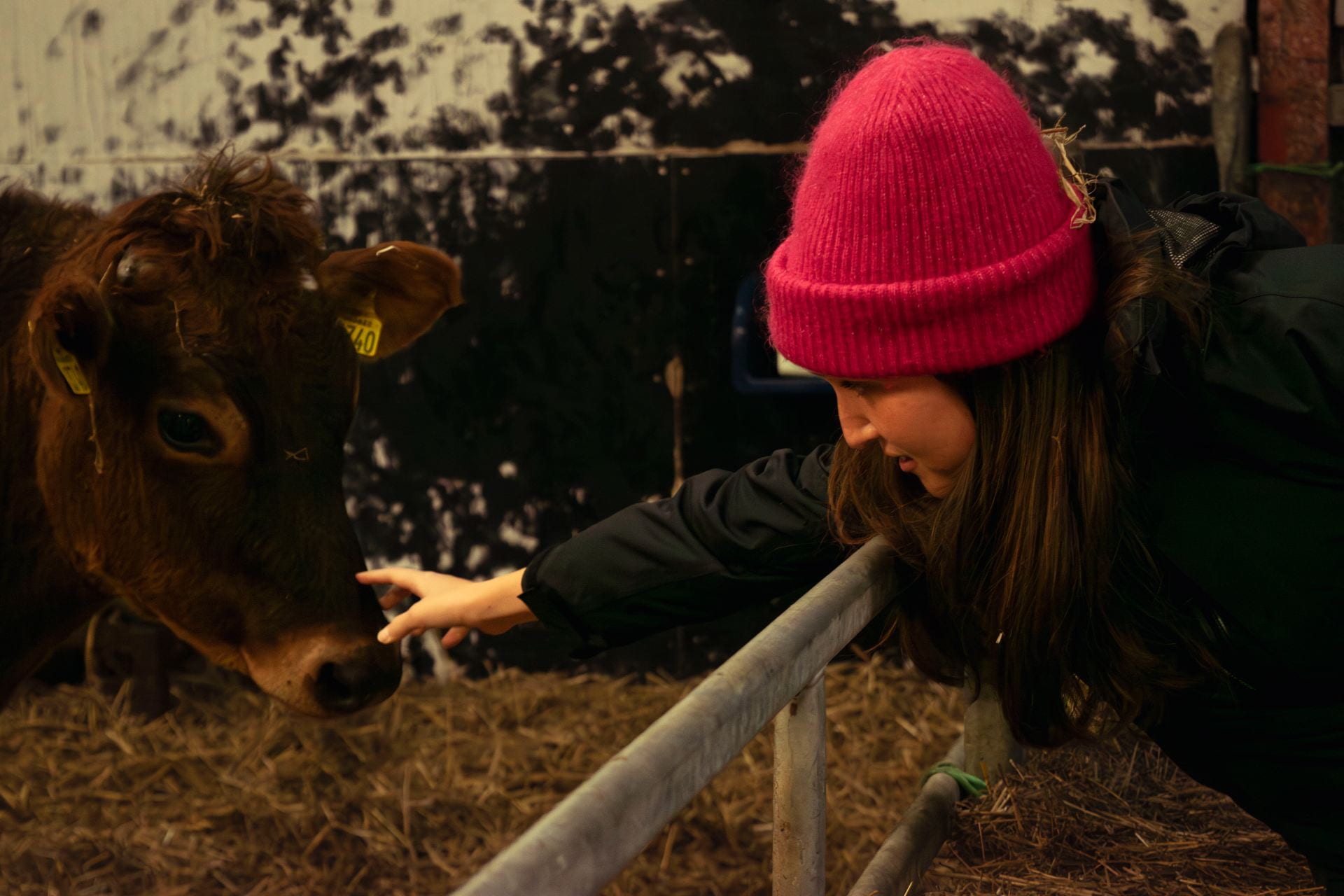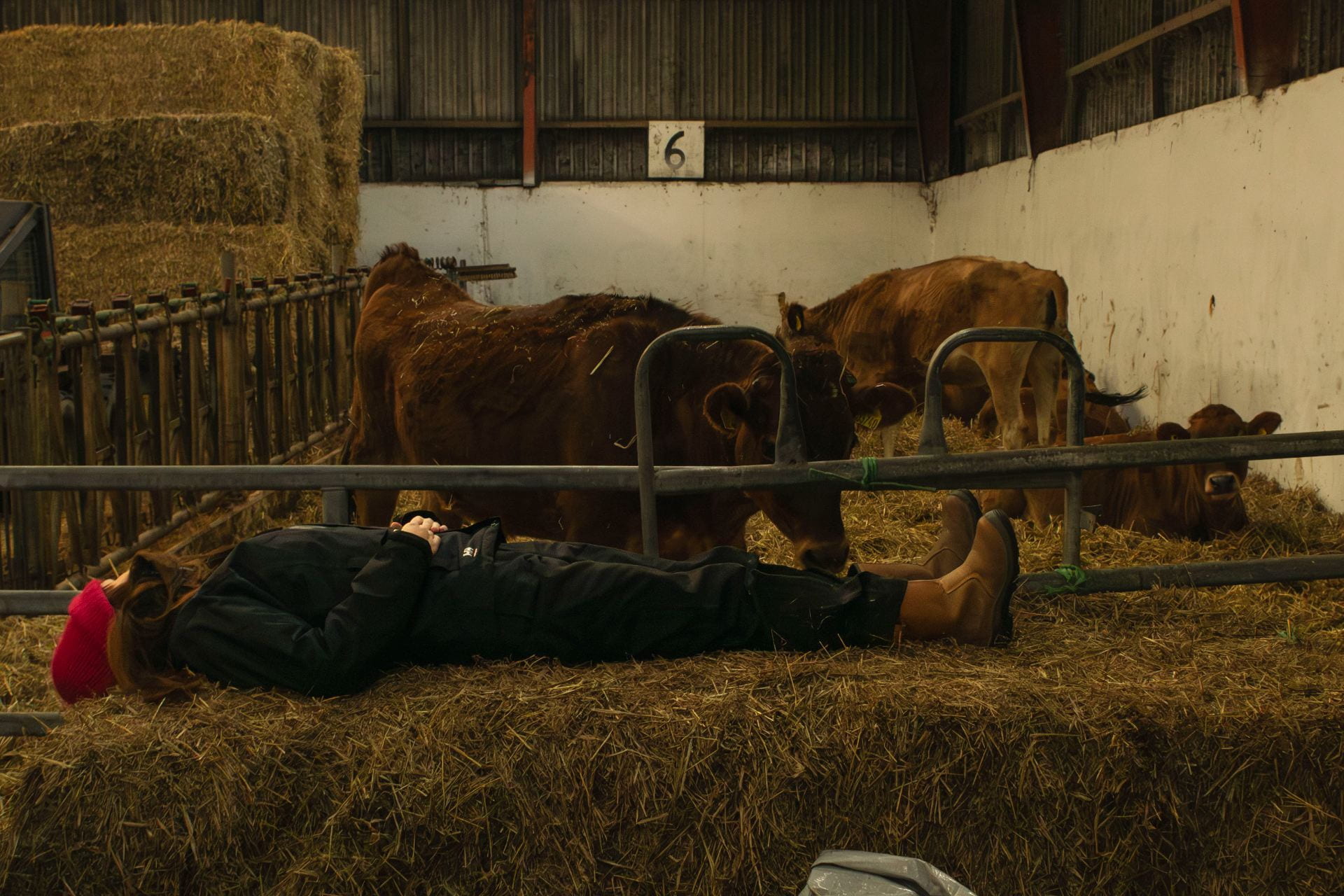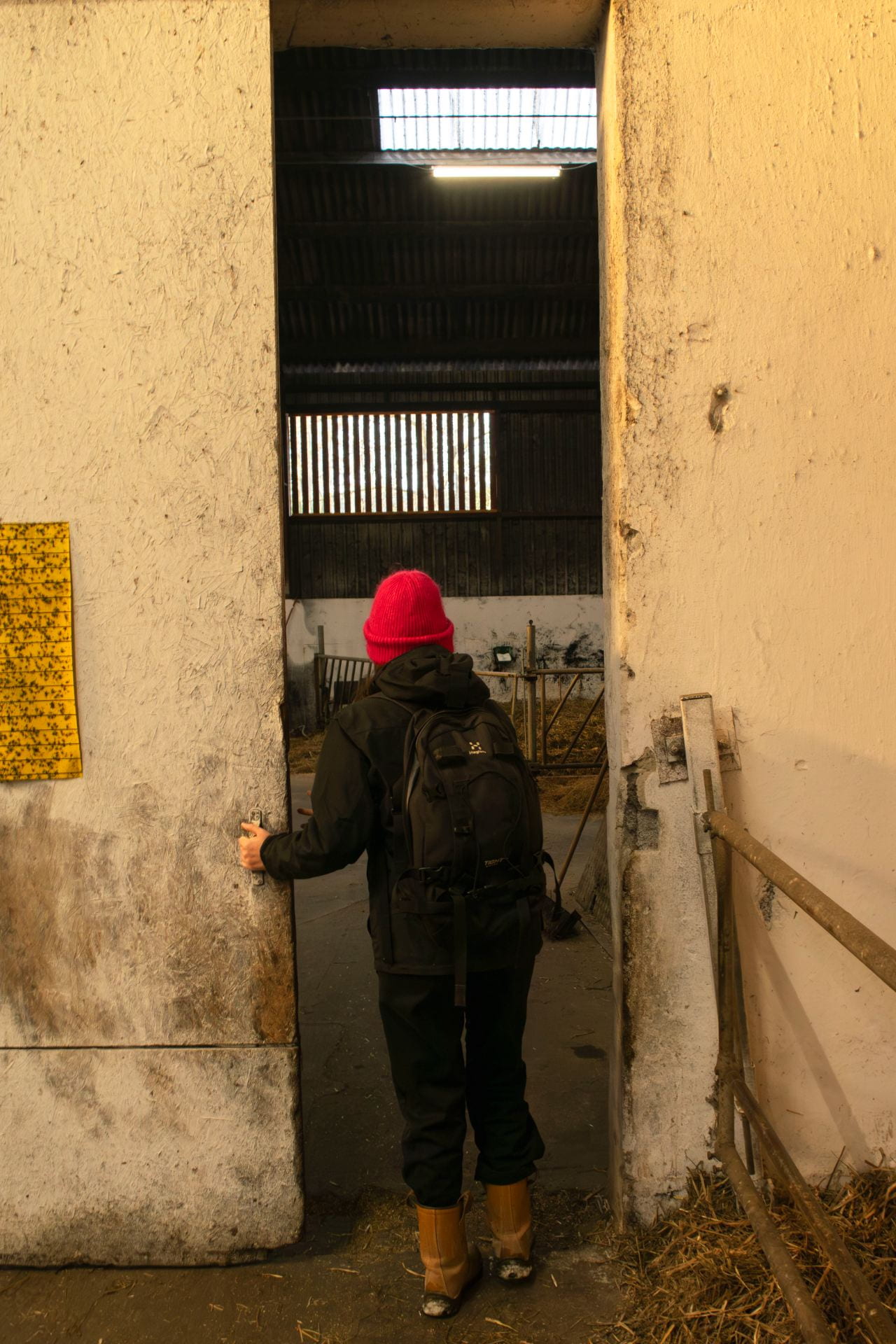
Sara is 23 years old and amongst a minority group of women challenging farming stereotypes, approaching the industry differently.
“Farming was never really presented to me as an option,” she said.
Agriculture in Denmark remains a male-dominated industry. The proportion of female farm managers in Denmark does not exceed 10%, and women are typically either born or marry into the lifestyle — neither of which apply to Sara.
Growing up in West Jylland, Denmark, she spent her childhood and youth on the countryside. Her only exposure to farming came from exploring her childhood best friend’s farm. While attending Højskole, she visited Kalø — Denmark’s only organic agricultural college — on a study trip.
“When I was here the first time, I hated it. I was like, ‘Who would want to go here?'” she laughs, looking back. “Studying to become a farmer and driving tractors — I had never experienced it — and then I started, and I loved it.”
“Farming was never really presented to me as an option.”
It took Sara a while to accept her own decision and the place — located only 40 kilometers from Aarhus, the farm feels far from city life and quite remote. She was sure she would drop the idea and drop out of school after only a few weeks, but over two years later, the place now feels like home to her. The cowshed has become her favorite spot to escape life’s busyness. She often lays flat atop a hay bale right next to the gate, closes her eyes and waits for the cows to come close and lick her face.

In the first year at Kalø, Sara learned how to fixate and milk cows. Milking is one of her favorite tasks on the farm because of the connection she has with the animals. She used to wake up at 5 a.m. to get to the stable before class because she was so excited.
Now, in the second year of the “Global Organic Farming” apprenticeship course, her studies focus heavily on the theoretical and mathematical aspects of farming — calculations, laws, the anatomy of cows and plants, how to fertilize properly and organically. She gained a more practical, hands-on education from her internship on a cattle farm in Norway and a plant farm in Sweden last year, and it was there that she learned what it means to be a first-generation farmer.
“You don’t always get assigned the most fun tasks,” laughs Sara, recalling the few months she spent working. “I don’t come from a farming background, so I don’t
have the farming network, and also — being a young woman — I just already feel like I’m set back.”
Women are much more likely to lead farms in Eastern Europe with a socialist history, and women are often the face of farming beyond EU borders. However, due to gender-specific obstacles — such as lack of access to land, financing, markets, agricultural training and education, suitable working conditions, and equal treatment — the Food and Agriculture Organization (FAO) of the United Nations state that women represent just 12.8% of the world’s agricultural landholders.
The farm manager on Kalø — a woman named Gaby — is a rarity in the field and a huge inspiration for Sara. The young student is well aware that a lot is going wrong in conventional agriculture, and there is still a long way to go to achieve more equality and sustainability in the industry. She is often confronted with prejudice outside the Kalø bubble when she tells people about her studies.
“I tell them I am studying to become a farmer, and they just stare at me,” Sara laughs, yet the frustration on her face is obvious. “Sometimes I get embarrassed because I do not want to sound like a weirdo, so I simply say I am studying something with soil and biology.”
Regardless of stigma and misconceptions, she is full of pragmatic optimism.
Knowing that organic farming is not the solution to everything, she clings to the belief that many things can be done differently than conventional farming. By using less fertilizers, farmers can diminish the amount run-off pollution that ends up in waterways. Diversifying the landscape with trees and bushes between crop fields and leaving strips of land along the field borders untouched is a solution for leaching — the process that occurs when valuable nitrogen and soil nutrients are washed out.
She believes that farmers have power to steward nature sustainably with these practices she learned in her current course, but the ultimate responsibility lies with a higher authority.

“It’s the politicians who have to create an environment that lets us farm in a sustainable way,” Sara explains. “There is nothing in it for us but going bankrupt.”
Regardless of these issues — political, financial, gender-based — Sara finds hope for the future. She dreams of one day running a small-scale organic cattle farm.
“I want to make a difference,” Sara says. “Working on an organic farm, supporting that system and working with animals — I’m going to be the one. I would like to prove to myself that I can do this.”